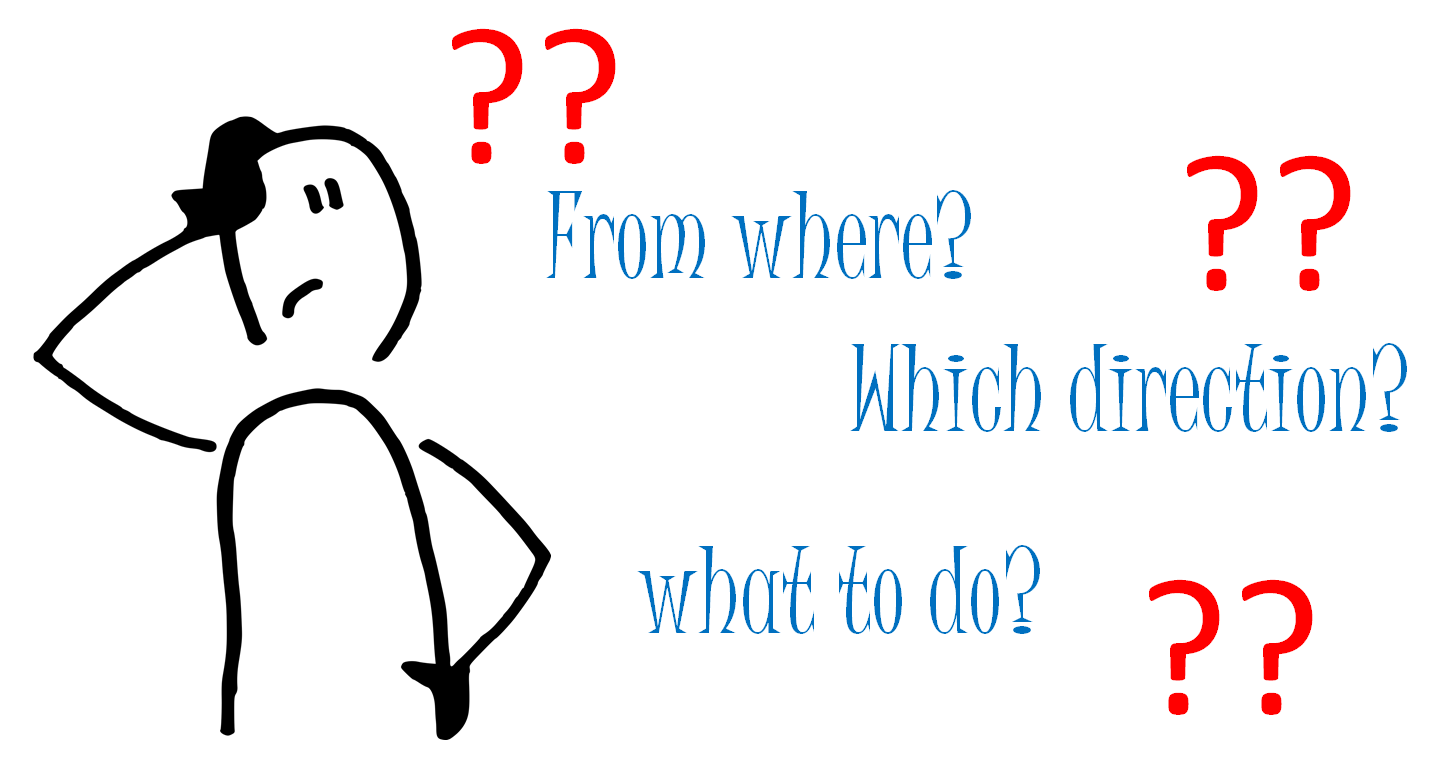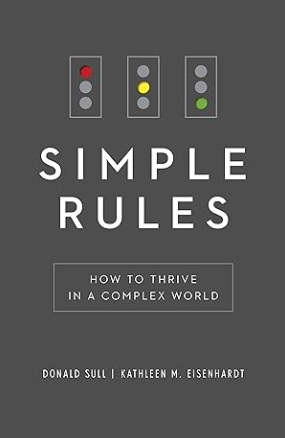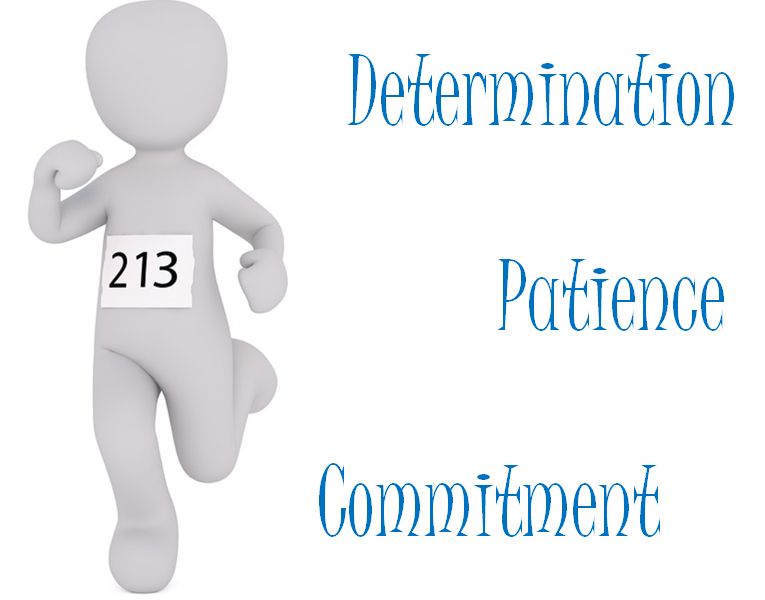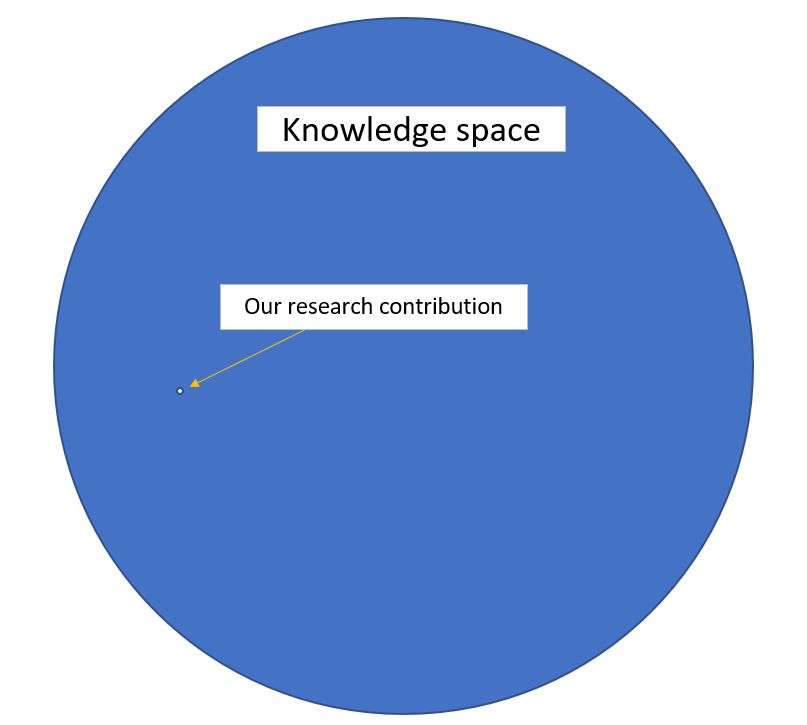Research is like a puzzle: Start from anywhere to reach a goal
Like a puzzle game, research is a unique and challenging but very rewarding activity. This metaphor is somehow valid, although may be not directly an 100% apple-to-apple comparison.

When we play a puzzle, we can start selecting any first piece or from anywhere and then build on the first piece, one-by-one, until the puzzle is completed. After the completion, we can see the real or meaningful picture of the puzzle.
Like a puzzle game, research is a unique and challenging but very rewarding activity. This metaphor is somehow valid, although may be not directly an 100% apple-to-apple comparison.
Research is unique because every type of research has its own characteristics. Different methods and approaches, such as data analysis and experimental methods, that are suitable for one research may not be suitable for another type of research. Problems and solutions for one research will be different for another research.
Research is challenging in the sense that we need to critically question current states or solutions of problems (status-quo). We need to be brave trying new things to understand whether it will work or not. Many times, after countless effort and long hours, what we found is that tried ideas or solutions or methods are not effective or does not work at all. This is normal! The positive is that during the time we spent to try ideas or methods, we learn something from there and that effort is a corner stone to the next effective solutions.
Research is rewarding. After long hour works and trials, when we start to see results (the whole picture or most of the picture of a puzzle), even just for small results, we will have a high feeling of satisfaction. Because, we can “connect the dots” that are previously unarranged or unconnected, seems to be random and meaningless, into something meaningful and give insights. It is like when we finally can partially or fully construct the whole picture of a puzzle so that we can start to see or understand what the picture of the puzzle all about.
READ MORE: Is research expensive?
- Deep work: Rules for Focused Success in a Distracted World – A book explaining how to maximise results in any activities and some tips to achieve it.
Starting research: Everything is blurry and scary
Fear, confuse and doubt are common feelings when we start a research activity in a certain topic. These feelings are normal and we should not be worry about. If we do not have these feelings, maybe what we are doing is not a research activity, but only a normal activity.
When we start to construct a puzzle, the puzzle’s pieces are random and scramble around. We do not sure from where we start or what piece we should select first. We can try to find a hint by seeing what picture of the puzzle from the box (if we still have the box) or perhaps we cannot find any hint.
Similar to research, at the beginning, we try to find some hints about how and where we can start the research. Sometimes, from highly experience mentors or persons, they can give a big picture of the research, for example what is the current research gaps or what is going on in the field (like in the case where we have the puzzle box, we can see the final picture of the puzzle and get hints from there).

However, in many situations, we do not have those type of mentors or persons to give hints for our research. Of course, it is normal as a human that we start to feel scared and confuse. The good thing is that it always happens to anybody, event to experts. We really do not know where and what to start to carry on the research.
In this situation, some knowledge about research methodology and skills are important. These knowledge and skills can be learnt.
Remember, the most important tool to carry any research activities are the skill of reading and writing!
- Grammar Rules: Everything you need to know but never learnt in school – A book about how to make efficient and concise sentences to writing with military precision!
With these two skills, they will open doors and opportunities to find new solutions for our research. Systematic literature reviews are critical to guide us to deeply going into our research field and to find “gaps” that still need improvements or new solutions.
By mastering reading skills, we can navigate through unknown research spaces and find the best “place to stop and start” and perform the necessary research.
In this wild journey to navigate through many literatures and find the correct gaps and possible way forward, “simple rules” methodology can be used. This methodology is efficient to put constraints in our searching journey through the wealth of information from literatures and other sources.
Simple rules only contain several rules, for example, we only limit the literatures published within certain period of years, only related to a specific scientific method and focus only on articles published in reputable journals. This methodology is very effective when we do not deeply understand/know the problem in our hand that we need to solve.
Other aspects that increase the level of fear in starting research is when we are coming from different backgrounds of scientific fields. For example, our background is in biology, but we are conducting research in an engineering department. Or, we have a background in a specific field and find a research job in another different field.
This situation, in modern days, will be most likely to happens as many research and development activities are interdisciplinary.
To solve this situation, we need to find “the red string” of our research field.
If we look closely in all research activities, let say in natural science, everything has the same basics or science, that is either the same fundamental physics or chemistry or math or biology/medicine or combination of them.
For example, in engineering, Fourier transform is a famous mathematical method for signal analysis. does not matter whether we are working in mechanical engineering, electrical engineering, chemical engineer or other engineering fields, we use the same Fourier transform to analyse signals in frequency domain, whatever the signals may be, for example, vibration signal, radio frequency signal, optical signal or electrical signal.
Going back to the puzzle, wherever we start our research from, we can still arrive at the same research goal.

In my PhD, the first time I started my research, I enter from “the door” of geometric fitting (a term in manufacturing metrology). I spent a lot of time in this research sub-topic and produced my first paper.
This first paper, at the end, became an appendix in my PhD thesis. However, the knowledge from this paper opens the door to my core research activities and is useful as a tool to finish my whole research project.
Note that research is unpredictable and have many approaches to solve. If research is very smooth, never has a mistake and exactly the same with what we have planned before (for example as we write in a proposal), then what we are doing is not research! It is just another day-to-day normal activity.
Conducting research: The marathon has been started
Research is a long process like a marathon. Like marathon, we need to maintain our pace and energy. We cannot due sprint all the time, otherwise we will be burnt out.
Patience and determination are the key to success in all fields of any research activities.
When building a puzzle, we need to use our creative idea and try to look at the pieces of the puzzle from different angle of perspective and guess what the next piece or step is to take and to continue finishing the puzzle.
Similarly, during research, we need to develop curiosity and creative ideas. Do not afraid to do mistakes and try new things. By making mistakes and trying new things, we can learn new things and use them as steppingstones to reach at correct and effective new solutions.
- The Art of Creative Thinking - A book on how we can develop human creativity to transform the way we do research and any activities.
In research, we always do “try this, try that”. It is like a puzzle game, many times we try to take a piece and try to see whether it is match with the correct piece or not. This situation is exactly what we are doing in research.
We need to try many times to test many already used methods or even to reproduce results from others to understand what is going on. By reproducing results from others, we will exactly learn an understand what the research about.

We need a lot of patience to be able to endure the “trial and error” activities in our research activities. Our determination will guide us to endure all the activities that are always demanding and tiring.
Research activities are like a learning curve. At the beginning, it is very slow because we have not yet gotten a grasp and confidence in the field we are working on. This situation can take months or even years.
But, when we reach a point where we understand the field, the “gaps” and methods that we can apply to solve the problem. Everything will be very fast, even within a week, we can have significant results compared to years we have spent at the beginning of our activities.
Exactly like a puzzle game, at the beginning, we are very slow to build the puzzle. At a certain point, when we start to understand the picture of the puzzle, everything will be very fast and we can finish the puzzle much shorter than where we are at the initial stage building the puzzle.
We need to enjoy the process during research activities. By enjoying the process, we will get patience and can develop creative ideas to find new solutions of new or existing problems.
Because, at the end of the day, the most important thing is that we need to enjoy with what we are doing!
Finishing research: A never ending process
Remember, research is a never-ending activity. Does not matter how many we have achieved or produced from our research activity, there are always rooms for improvement and way forward.
At the end of our research, we just realise that our contributions are just like a “tiny dot” within a “large circle” of the field we are working on.

We just realise that many things are still can be improved or re-done in a better way. More interesting new things will occur that are very worthy to be studied and explore!
At the end of our research, we will realise that our knowledge is still little. We will realise that the space of knowledge is limitless, but our capacity is limited. That is why what we currently know is only little compared to the total knowledge that are needed to be explored.
However though, we will have a very rewarding feeling after achieving a milestone in our research activity. The more we are struggling and the more effort we put into our research, the more rewarding feeling we will get!
Finally, any results from our research will only be useful (or have impacts) if somebody else use the results and continue working to build new research upon our research results. Or, our research results are applied to solve real problems.
In order to have impacts to our society or field, we have to write our research results into an article or technical report or any other reports that other people can read and reproduce the results. but remember, writing activities are part of our research and are not an additional activity after we finish our research.
Writing activities should be performed hand-in-hand with our research activity. That is, the writing should be done in parallel with our research activity!
Finally, do not afraid to move to another research field. To get more rewarding feelings and satisfactions, but absolutely more risk, we can go and try research in another field that is different with our previous field of work or expertise.
Conclusion
In this post, we make a metaphor between a puzzle game and a research activity. Although not 100% an apple-to-apple comparison, there are many similarity between playing a puzzle game and conducting a research activity.
Research is unpredictable, has high risk and high uncertainty. All research activities will always deviate from their plan, for example from their initial proposal. If a research activity is the same with the initial plan, hence it is not research, it is just a normal activity or “business as usual”.
Reading and writing skills are keys to successful research. All of us should master and continuously sharpen these two skills. Not only research, reading and writing skills will help us in all types of activity, from business to research.
Finally, do not afraid to try or enter new fields, even though the fields are totally different with our previous research background or expertise. Only by trying new fields, we will have the most rewarding feeling we can get.
We sell all the source files, EXE file, include and LIB files as well as documentation of ellipse fitting by using C/C++, Qt framework, Eigen and OpenCV libraries in this link.
We sell tutorials (containing PDF files, MATLAB scripts and CAD files) about 3D tolerance stack-up analysis based on statistical method (Monte-Carlo/MC Simulation).
